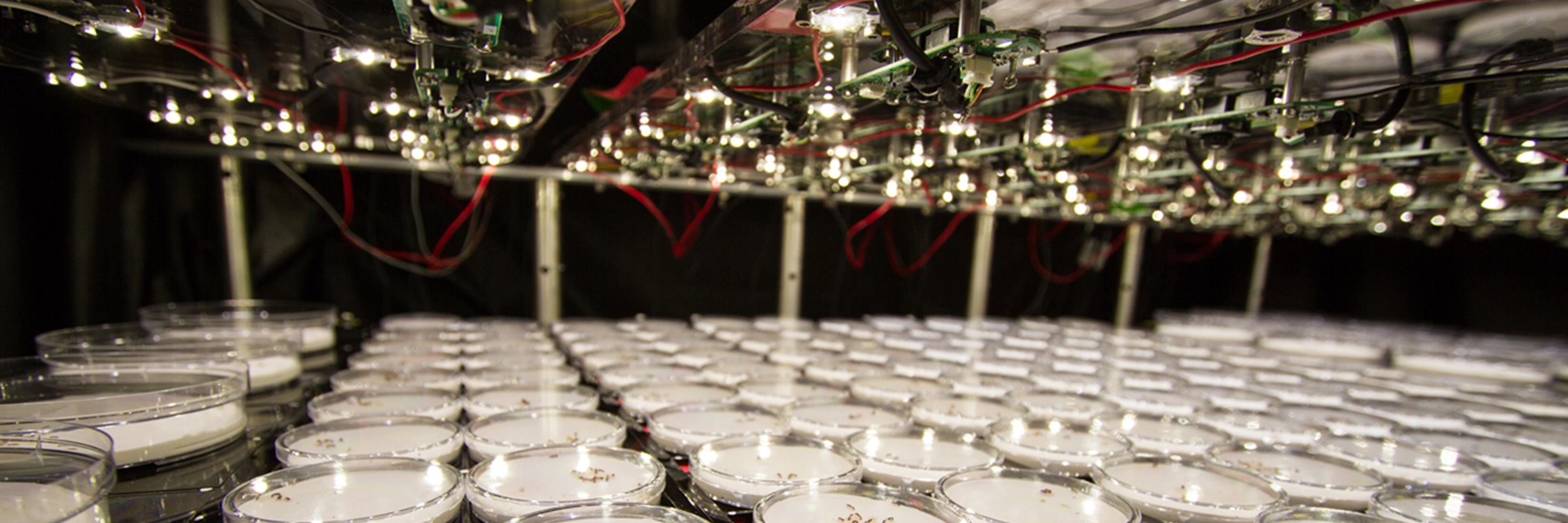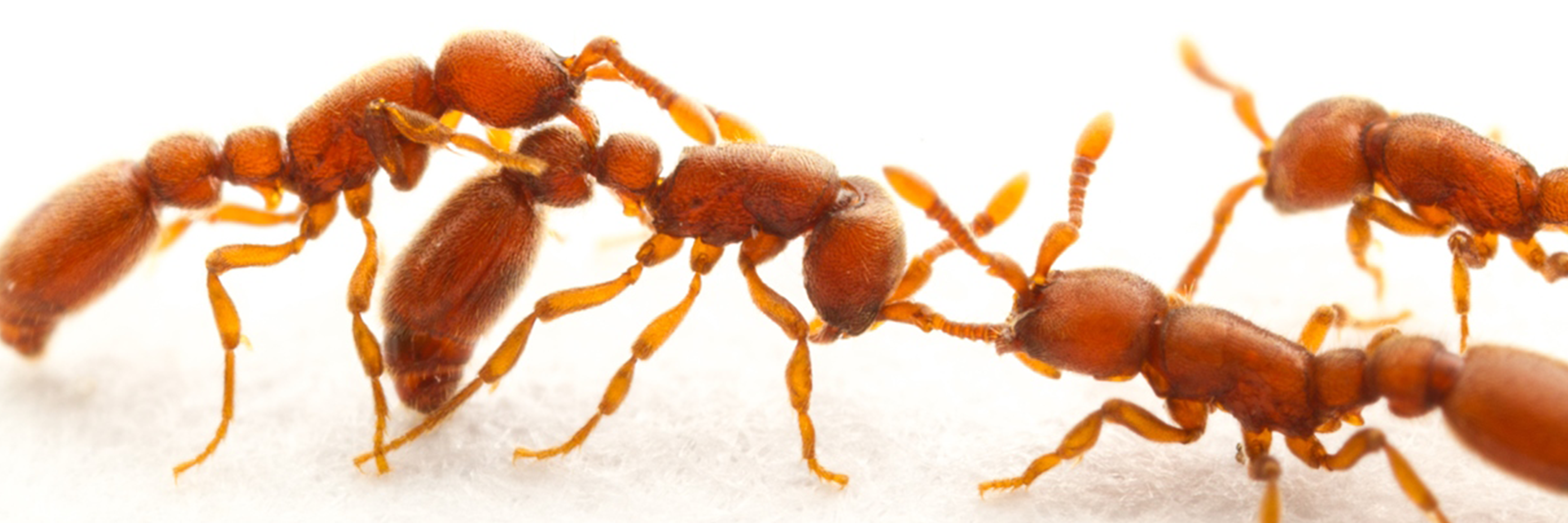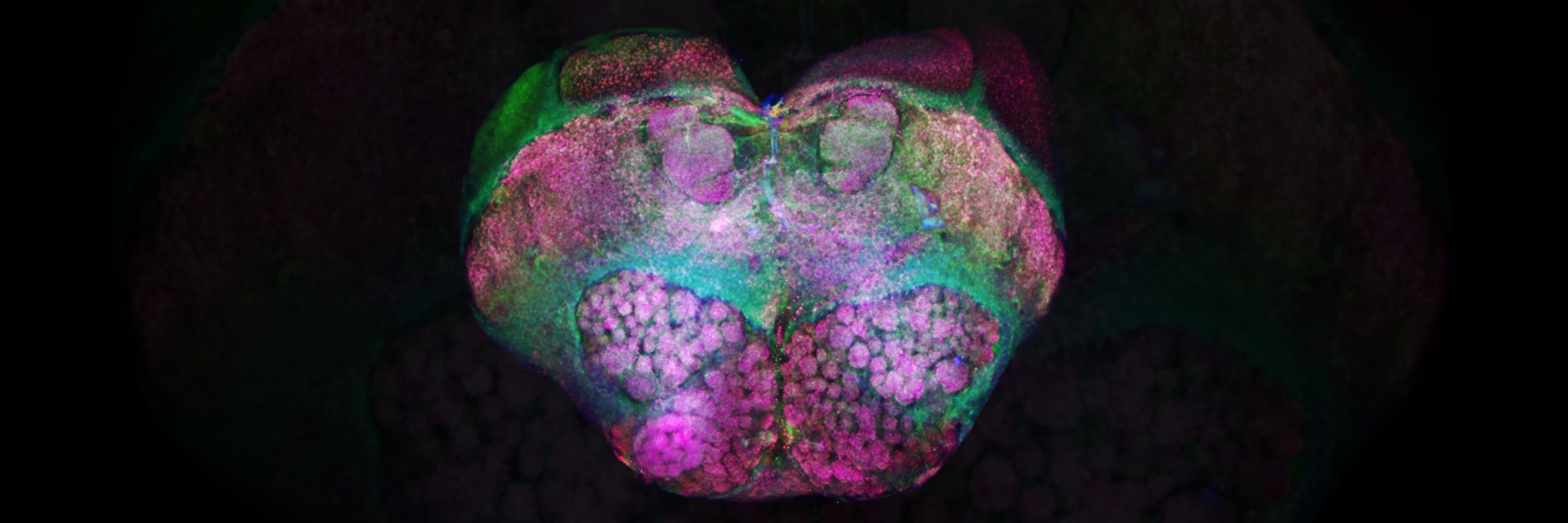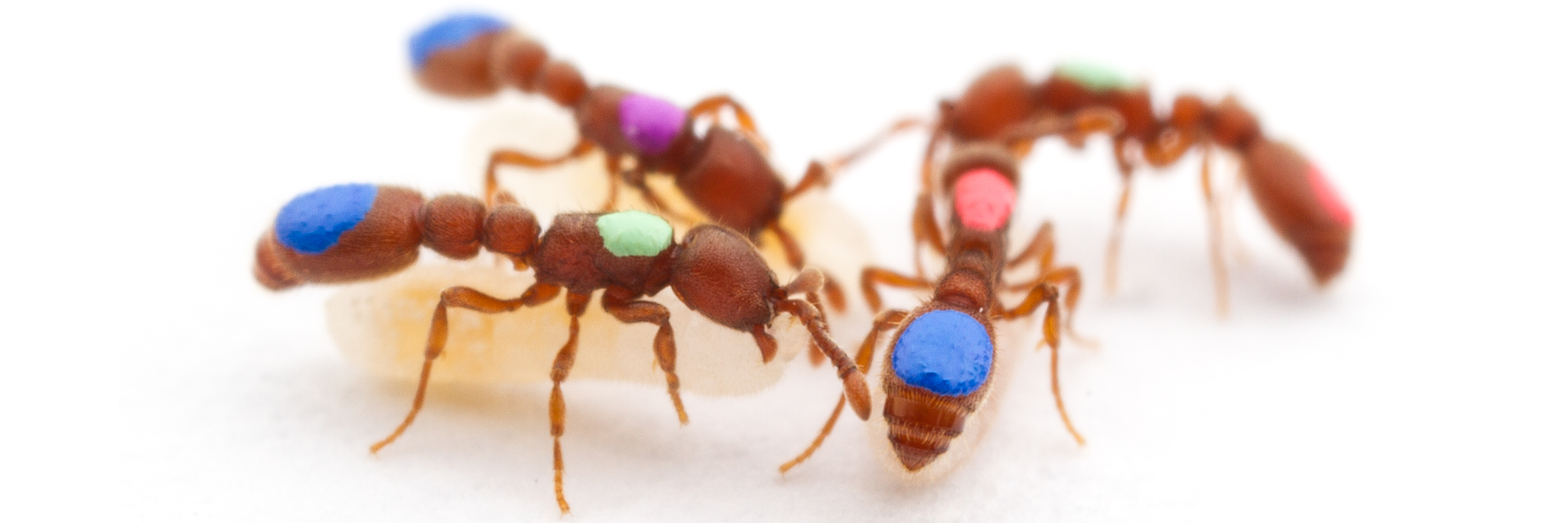Laboratory of Social Evolution and Behavior

Investigator, Howard Hughes Medical Institute




About Our Research
Members of the Laboratory of Social Evolution and Behavior, headed by Dr. Daniel Kronauer, use an integrative approach to understand how natural selection shapes the evolution of insect societies and how social life is regulated at different hierarchical levels, from genes and neural circuits to individuals and the colony. The lab’s research program is built around a carefully chosen, unconventional model system, the clonal raider ant Ooceraea biroi. This species combines the rich biology of social insects with unprecedented experimental control, allowing researchers to work with large numbers of colonies and isogenic strains that can be genetically engineered. The lab focuses on a set of interrelated and complementary questions that are not easily accessible in “classical” model organisms.
First, we want to understand the genetic, epigenetic, and neural mechanisms that underlie the differentiation of ants into “castes”. In ants, genetically identical females can develop into queens or workers that differ dramatically in morphology, physiology, behavior, and longevity. Studying such extreme cases of phenotypic plasticity can shed light on general epigenetic and developmental principles. Morphologically and genetically identical workers also specialize on different tasks in the colony, such as foraging or nursing, and we want to understand the underlying mechanisms at the neuromodulatory and circuit level. This addresses the important question of how behavioral individuality arises.
Second, ants are walking chemical factories and communicate with a dazzling array of pheromones. We study how the ant chemosensory system has evolved to perceive this chemical language at the periphery, and how social information is processed at higher levels in the brain to generate appropriate behavioral outputs. These studies provide insight into the developmental and coding logic of complex sensory systems, as well as the neurobiological basis of social behavior.
Third, we ask how the manifold social interactions between morphologically and behaviorally differentiated ants give rise to adaptive phenomena at the colony level, including collective decision making, foraging, parental behavior, and navigation. Combining these three major research avenues, our overarching goal is to reverse engineer an insect society to obtain a comprehensive molecular and organismic understanding of how such a complex biological system works.